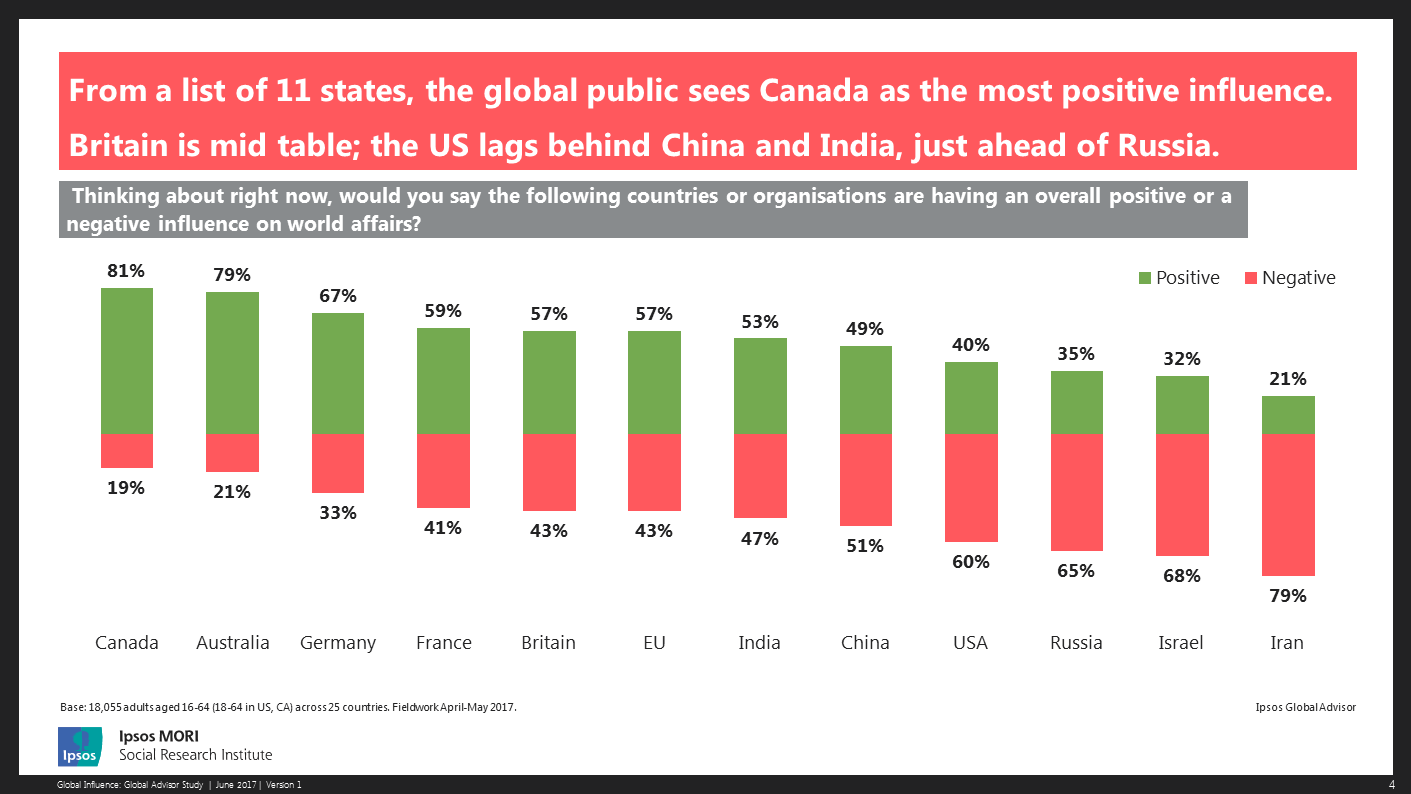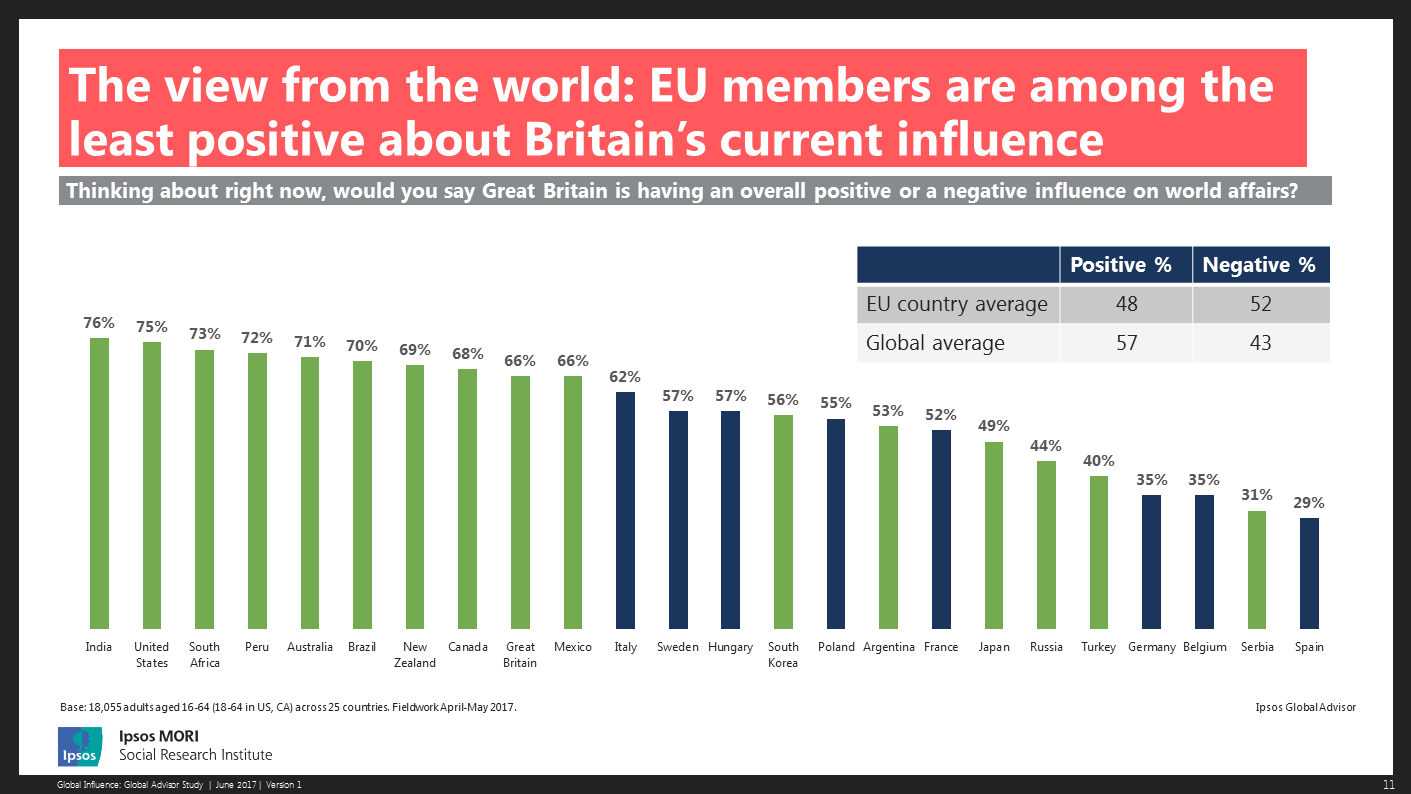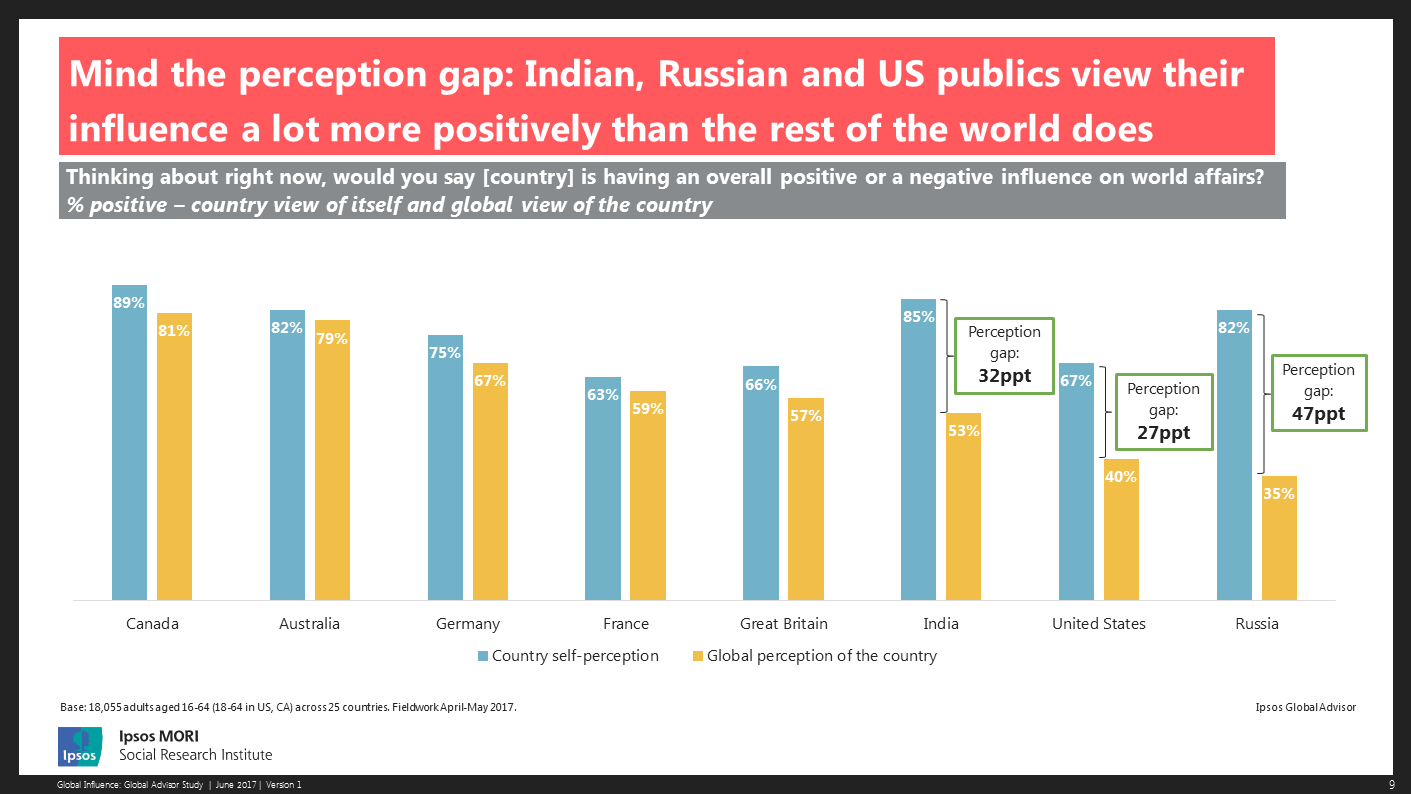Britain remains a positive global influence post-Brexit
A new global survey across 25 countries finds that 57% of the global public think Britain’s influence on world affairs is positive. This is a higher score than the US (40%) and China (49%), but lower than Germany (67%), Australia (79%) and Canada (81%). The global view sees Britain’s influence to be similarly positive to that of the EU (57%) and France (59%).

However, EU countries are less positive (48%) about Britain than the Global community (57%). In some EU countries (Spain, Germany and Belgium) fewer than half of citizens see Britain’s influence as positive. Just 29% of Spanish citizens, and 35% of those in Germany and Belgium, say Britain’s current influence on world affairs is positive.

Two thirds (66%) of Britons believe their own country is a positive influence on world affairs. The British public rate only Canada (87%) and Australia (84%) above themselves. 48% believe the EU has a positive influence on world affairs, whilst 52% believe its influence is negative.
Like the British, people in most countries feel that their own country is a force for good. This ranges from 89% of Canadians who see Canada as a positive influence, down to Turkey, where 53% see their country in the same positive light. Spaniards are evenly split on the nature of their country’s influence, whilst those in Brazil (48%), Argentina (46%), South Korea (46%), Hungary (40%), Mexico (38%) and South Africa (32%) are less positive, with less than half feeling their country is a positive influence on the world.
In some cases, people’s perceptions are accurate, for example 82% of Australians perceive their country positively, compared to 79% of people globally. However, in some countries there is a significant perception gap. Russia, India and the US see themselves in a much more positive light than everyone else does:
- 82% of the Russian public think their country is a positive influence on world affairs, compared to just 35% of the rest of the world - a 47 percentage point difference.
- In India this gap is 32 percentage points; 85% of the national public see India’s influence as positive, compared to 53% of the global public.
- In the US, two thirds (67%) believe America’s influence is positive, yet only four-in-ten (40%) of the global public say the same – a 27 percentage point gap.

In Britain (and worldwide), America’s influence in world affairs is viewed less positively than China’s. This echoes other recent research by Pew that found America’s global image has suffered under the Trump presidency. 44% of Britons say China is having a positive influence on world affairs – compared to just 36% for the United States. This strongly contrasts with the view in the US, where 75% say Britain is a positive global influence.
Bobby Duffy, MD Social Research Institute, Ipsos said:
Britain comes mid-table in a new global study on how positive an influence different nations are on the world. But our rating ranges widely from 76% in India being positive about us to only 29% in Spain. This reflects a general pattern of EU countries seeing us less positively than others - although we shouldn't overplay our image problem with our continental neighbours: still over half the population in Italy, Sweden, Hungary, Poland and France are positive about our impact on the world. Germany and Belgium are less convinced, alongside Spain. We are also at least fairly realistic about our own impact - with British people pretty close to the global average on their view of Britain. In contrast, some countries are more positive than they should be: people in India, the US and Russia all see their own countries much more positively than the rest of the world do.
Technical notes
- Interviews were conducted using the Ipsos Online Panel system, among 18,055 online adults aged 16-64 in 25 countries (Argentina, Australia, Belgium, Brazil, Canada, China, France, Britain, Germany, Hungary, India, Italy, Japan, Mexico, New Zealand, Peru, Poland, Russia, Serbia, South Africa, South Korea, Spain, Sweden, Turkey and the United States).
- Fieldwork was conducted between 21 April and 5 May 2017. Data is weighted to match the profile of each population.
- In countries where internet penetration is approximately 60% or higher the data output generally reflects the overall population. Of the 25 countries surveyed online, 16 yield results that are balanced to reflect the general population: Argentina, Australia, Belgium, Canada, France, Germany, Great Britain, Hungary, Italy, Japan, New Zealand, Poland, South Korea, Spain, Sweden, and United States. The 9 remaining countries surveyed – Brazil, China, India, Mexico, South Africa, Serbia, Peru, Russia and Turkey - have lower levels of internet connectivity and reflect online populations that tend to be more urban and have higher education/income than the general population.



